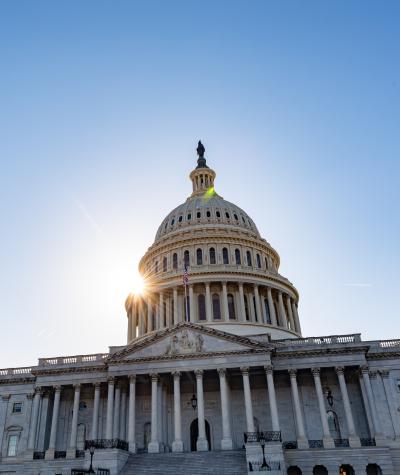This week, Congress is holding an important hearing on a proposed law that would significantly improve transparency in our elections: the Democracy Is Strengthened by Casting Light On Spending in Elections Act (DISCLOSE Act).
Transparency in elections is a central pillar of a vibrant, inclusive democracy. Voters have a fundamental right to know who is spending money to influence their vote, as that information is essential for citizens to cast an informed vote and meaningfully participate in the democratic process.
Yet in recent years, as corporations and wealthy individuals have spent billions of dollars to influence elections, a substantial amount of that spending has been deliberately hidden from public view using a variety of legally dubious tactics.
The result is that our elections have become immersed in secret spending, also known as “dark money,” creating a political atmosphere more responsive to wealthy special interest priorities than the public’s welfare.
The dark money that permeates our political system prevents voters from weighing, in the proper context, the credibility and reliability of campaign messages.
Dark money also leaves our elections vulnerable to corruption and foreign influence: When the sources of election spending remain undisclosed, it is hard to prevent foreign money from manipulating our elections or identify election spending that’s part of a corrupt “pay-to-play” bargain.
Real accountability requires that election spending be publicly disclosed and open to scrutiny.
For years, Campaign Legal Center (CLC) has been at the forefront of efforts to combat dark money’s influence, pursuing enforcement by the Federal Election Commission (FEC) and federal courts as well as systemic legislative and regulatory reforms.
CLC has filed numerous administrative complaints involving schemes in which the true source of election spending funnels money to a super PAC through an intermediary — often a shell company like an LLC that has no apparent connection to the true contributor — such that the intermediary’s name appears on publicly disclosed campaign finance reports and the true contributor’s identity is obscured.
For example, an obscurely-named LLC was recently reported as the source of a $500,000 contribution to a super PAC. CLC filed an administrative complaint alleging that this contribution — the largest the super PAC had ever received — came from a single, individual donor (who later admitted to being the true contributor in an amended disclosure report filed after CLC’s complaint.)
CLC has also pursued legal action against dark money groups that claim to be "social welfare nonprofit” organizations under section 501(c)(4) of the federal tax code.
These groups often raise and spend millions of dollars to help elect their favored candidates; they're able to take advantage of extremely lax oversight by the FEC and the Internal Revenue Service (IRS) and pour money into elections with essentially no transparency regarding the provenance of their funding.
For instance, following the FEC’s failure to take any action on allegations that CLC brought to the agency, CLC filed suit against 45Committee, a group whose very name reveals its mission to support the election of former President Trump — i.e., the 45th President.
45Committee spent over $21 million on ads urging viewers to elect Trump but disclosed nothing about the sources of its funding.
It wasn’t supposed to be this way. Although the U.S. Supreme Court facilitated this deluge of special interest election spending in the 2010 Citizens United v. FEC decision, eight of the nine justices then serving voted to affirm laws requiring that election spending be disclosed.
Importantly, in addition to rejecting arguments in favor of secret election spending, the Supreme Court’s opinion forecast that the decision would usher in a “campaign finance system that pairs corporate independent expenditures with effective disclosure.”
That prediction could not have been further from our current reality.
Because individual enforcement actions to combat dark money often stall right out of the gate, systemic legal reform is sorely needed to halt the onslaught of secret spending in our elections.
Congress needs to enact legislation that significantly expands and bolsters disclosure requirements for election spending. In that vein, the Senate Rules Committee’s hearing this week on the DISCLOSE Act is timely and important, as this proposed law would help end many of these transparency problems.
The DISCLOSE Act would dramatically curtail secret spending in our elections by shining the light of public disclosure on dark money flowing through intermediary groups.
The DISCLOSE Act would stop the shell game of using intermediary groups to conceal the true sources of large political donations by requiring groups that spend money on elections to disclose donors who have given $10,000 or more during an election cycle.
It also includes trace-back requirements for LLCs and other corporate entities that engage in election spending and requires such entities to provide public disclosures regarding their beneficial owners.
These reforms would address some of the most commonplace tactics currently used to conceal election spending from public view.
At the same time, these reforms would not prevent anyone from spending as much money as they wish on elections; they only require that such election spending be publicly disclosed — an outcome overwhelmingly supported by the public.
At this tenuous moment for our republic, Congress should pass the DISCLOSE Act to proactively address the rising tide of dark money in our elections. Until it does, our elections will most likely remain awash in secret spending by special interests, leaving our democracy less inclusive of — and less responsive to — the voters.

